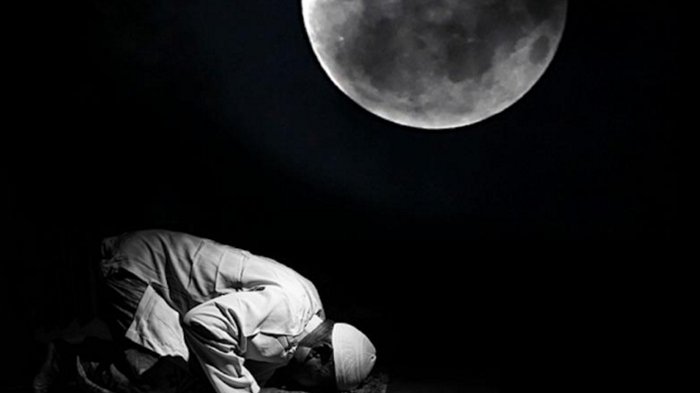Once a Sahabiah Nusaybah bint Kaab (Umm Umarah) told to the Prophet ﷺ that in the Noble Quran only men were mentioned and women were often deprived of any importance. Then this Ayah was revealed:
اِنَّ الۡمُسۡلِمِيۡنَ وَالۡمُسۡلِمٰتِ وَالۡمُؤۡمِنِيۡنَ وَالۡمُؤۡمِنٰتِ وَالۡقٰنِتِيۡنَ وَالۡقٰنِتٰتِ وَالصّٰدِقِيۡنَ وَالصّٰدِقٰتِ وَالصّٰبِرِيۡنَ وَالصّٰبِرٰتِ وَالۡخٰشِعِيۡنَ وَالۡخٰشِعٰتِ وَالۡمُتَصَدِّقِيۡنَ وَالۡمُتَصَدِّقٰتِ وَالصَّآئِمِيۡنَ وَالصّٰٓـئِمٰتِ وَالۡحٰفِظِيۡنَ فُرُوۡجَهُمۡ وَالۡحٰـفِظٰتِ وَالذّٰكِرِيۡنَ اللّٰهَ كَثِيۡرًا وَّالذّٰكِرٰتِ اَعَدَّ اللّٰهُ لَهُمۡ مَّغۡفِرَةً وَّاَجۡرًا عَظِيۡمًا
“Indeed, the Muslim men and Muslim women, the believing men and believing women, the obedient men and obedient women, the truthful men and truthful women, the patient men and patient women, the humble men and humble women, the charitable men and charitable women, the fasting men and fasting women, the men who guard their private parts and the women who do so, and the men who remember Allah often and the women who do so – for them Allah has prepared forgiveness and a great reward.”
[Al Ahzab:35]
This Aya represents the equality of the reward of the Islamic sincerity of men and women opposite Allah (swt). It is shown that it is not about the gender for Allah (swt), but about who is a Muttaqeen and directs his whole life in this world according to the rules of his Creator. Considering these facts, Muslim women should be aware that the month of Ramadan is a special month for us as well as for men, and that it is not primarily about the preparation of the most extraordinary foods, but about gaining Allah’s approval, to earn the greatest reward in this holy month where all good deeds are rewarded 70 times more, and belong inshaAllah to the righteous to whom Allah promised forgiveness and a great reward, as mentioned in the Aya above!
Looking back at the history of Islam and Sahabah and Sahabiyyat, we get an Imagine what was the month of Ramadan really about to the companions of the Prophet ﷺ, and how much Taqwa and sincerity were in their hearts. They fasted also like us, performed their prayers at nights, fed the poor and thus who fasted, and also gave Sadaqa. BUT they also led conquests in this holy month, make political deals and took care of the affairs of the entire Islamic Ummah.
Some of the special Victory of Muslims in Ramadan were: The Battle of Badr (2 AH) which was on Friday 17th of Ramadan. Allah (swt) gave the Muslims a victory in this Battle. Also the Purification of Mecca (8 AH) was on 20th of Ramadan where the Treaty of Hudaibiyya had been broken and it was possible for the Prophet ﷺ conquering Mecca without a battle. The other victory was the Liberation of Spain (92 AH) which was under the tyrannical rule of King Roderic of the Visigoths. Tariq ibn Ziyad defeated the Visigoth army and began the Golden Age of Al-Andalus where Muslims ruled for over 700 years. The Fall of the Mongols (658 AH) was also in Ramadan. The Mongols were sweeping across Asia destroying everything in their path. Allah (swt) raised from the Mamluks of Egypt, Saifuddin Qutuz, who united the Muslim army and defeated Mongols at Ain Jalut. And the Liberation of Palestine (582 AH) where Salahuddin Ayyubi fought one of the most important battles in Islamic history. In a single day, the Muslims virtually routed out all the crusaders and liberated Palestine.
Sahabah and Sahabiyat were involved in these big events. There are lore that Rufayda Bint Saad Al-Aslamiyya, who lived at the time of the Prophet Muhammad ﷺ, is often referred to as “the first nurse in Islam”, assisted the wounded during the Battle of Badr which was during the month of Ramadan. The other example is Laila al-Ghifariah. She took also part in battles, carrying water and nursing the wounded. Also a Sahabiya named Umm Dhahhak bint Masoud take part on the Islamic battles and she were even rewarded with booty in the same way as the men. Other example for us Muslim Women is Umm Salamah thus had the distinction of taking part in many battles of significance in the history of Islam. She was with the Prophet ﷺ during the Battles Bani Mustalaq, Ta’if, Khaybar, Hunayn and the conquest of Makkah which was during the Month of Ramadan. She was present at the signing of the historic treaty of Hudaybiyah or Ridwan theu oath of allegiance taken place.
These are, of course, just a few examples that show that the Sahabiaht, who are role models for us, were courageous, sincerely and Taqwa-filled women who wanted to work in all areas of their life where they could advance Islam and so they did this also during the holy month of Ramadan. The Muslims of the past did not categorize their lives in phases and moods according to their own desires. They did not become spiritual emotionally in Ramadan and spent their time with praying, fasting and reading the Qur’an to satisfy their worship instincts. Rather, they were focused on Islam as a life order throughout their lives, and the only difference was that they valued the reward of Ramadan and therefore was the month of Ramadan very holy to them. But they continued to obey all orders of Allah (swt) during this month that they also performed otherwise.
Thus, the Muslim Ummah should follow the path of the Muttaqeen of the past and internalize the real meaning of the month of Ramadan as the Sahabah and Sahabiyat of the time of the Prophet ﷺ did it.
Consequently, the work for the reestablishment of the Khilafah (Caliphate) upon the method of the Prophethood, is for us Muslims during and outside of Ramadan, according to the reality that the Ummah has not a protector, an indispensable duty for the man as well as for the woman.
Amanah Abed

